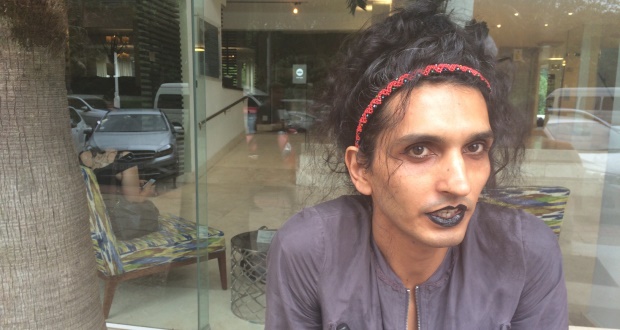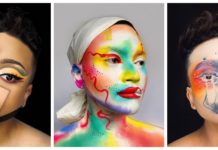NIKHIL SINGH’s debut novel “Taty Went West†was described by Lauren Beukes as “a hallucinogenic post-apocalyptic carnival rideâ€. He’s writing 13 other novels at the moment, and he’s determined to shatter stereotypes. Dana da Silva caught up with him at the Time of the Writer festival.
The theme of this festival, “Decolonising the bookâ€, is a bit ridiculous but it’s vaguely entertaining. Well, it’s kind of like jumping on a bandwagon. Secondly, the only tribe that was not a colonising tribe was the San. Every other tribe in Southern Africa has been a colonising tribe. So there’s almost like a pointlessness to it. I also like how it can really be explored if you get into decolonising, which is removal of all kinds of cultural stigmas and get back to a kind of harmonising of the land and with the energies, and which have nothing whatsoever to do with the kind of political system, race or cultural identity which I think is true decolonisation. I don’t think people are really interested in [that].
There’s a lot of sci-fi being written, but it’s not accepted by publishers generally. I’ve been to a few festivals where they’ve been talking about African futures and futuristic African things and there are a lot of things that people are pissed off about and one of the things is that most Western mainstream audiences don’t understand Africa. They feel they need some sort of entry point into the narrative that has some political narrative or social or historical or racial context. And the fact of the matter is that Africa is just really a place, a place like everywhere else. And you can have an experience that has absolutely nothing whatsoever to do with those things.
A lot of the science fiction or futuristic things that people have written in the underground that I’ve come across, they’re like that. They’re not really placed in Africa. If you’ve lived here and you’ve read it, you’d know it was here. But because a lot of people think an audience might not relate to that, they push these sellable stereotypes. I have a problem with that. I’m really against it and I’m going to do something about it. And I’ve done it.
I like that people can interpret a book the way they feel it should be interpreted. My view is not really the definitive view of it even if I wrote it. It’s still something that’s explored by the person who’s reading it so they can decode it however they like.
Sci-fi tends to concentrate on the sort of masculine stereotypes where you have a forceful character and somehow their forceful character is the thing that drives the narrative. Cliché is too obvious a word. It falls into a homogenisation of science fiction. And people don’t really treat female characters as characters. They are just sort of textures or objects. And I don’t want to say I’m a feminist because there’s also a stigma that comes with it. But at the same time, there’s a lot of things about feminism that I align with and I thought it would be interesting to have a really unreal world and a normal girl. She’s not some superhero, she’s actually really terrified. But she’s really stubborn, she’s there because she wants to be there. She’s going to stick it out and all sorts of terrible things happen to her and I didn’t want to sugar-coat that either. I didn’t want to be gratuitous about it but it’s something we don’t talk about in Africa. I mean there’s a lot of nasty stuff that happens here and they put it in patinas and look for the deeper meaning of rape and murder. But I wanted to treat them more as real things; the real effect that those things have on people.
I used to go to high school in two different places. I went to Hilton and Tongaat. I’d been there as child but I was really blown away by the jungle and you always think there’s dinosaurs and stuff, but there’s also like this futuristic effect. I used to collect a lot of old science fiction novels and they’re always airbrushed. There’s always a patina of rust around the horizon that blends into a jungle landscape and there’s often weird structures in the haze and Durban looks exactly like so when I was a kid everything looked like this science fiction book cover.
For me, the North Coast has always been futuristic so I wanted to write something set in that world but not placing it there. Because I don’t like names, I don’t like situating things. I really hate that actually, so for me it was a special place, it had a magical aspect. So the science fiction thing was going back to when I was a teenager when I had these science fiction feelings. Because I had been writing a lot of stuff that was serious and I wanted to get back to that nostalgic science fiction theme which Durban is. That’s just my experience.
The Daily Vox is the official media partner of the 2016 Time of the Writer Festival, which runs from 14-19 March 2016. For the full programme, click here.









